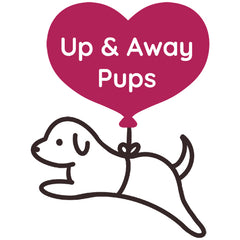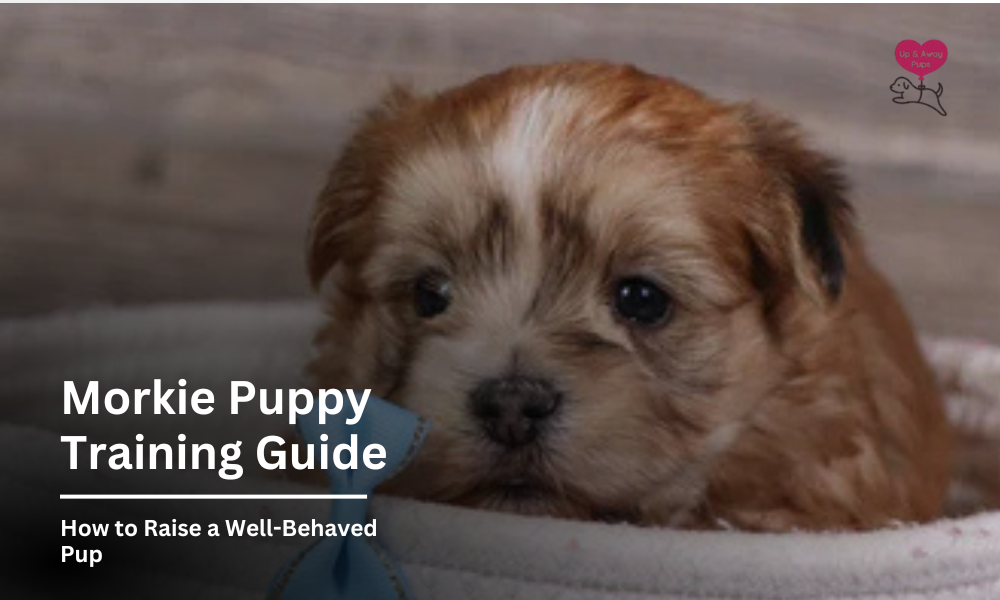Morkie Puppy Training Guide: How to Raise a Well-Behaved Pup
Training a Morkie puppy requires patience, consistency, and understanding their unique mix of Maltese affection and Yorkshire Terrier spirit. This guide covers essential tips such as establishing a gentle but firm leadership bond, managing tantrums, effective potty and crate training, and teaching leash manners. It also emphasizes using balanced rewards, reading your puppy’s body language, and handling setbacks calmly. With the right approach, you’ll build a strong, trusting relationship that turns your playful Morkie into a well-behaved, confident companion.
Morkies blend the affectionate nature of a Maltese with the bold spirit of a Yorkshire Terrier, creating a pup full of personality and playful chaos. These tiny dogs come packed with energy, charm, and a streak of mischief that makes training essential. Successful Morkie puppy training requires more than routine commands—it calls for creativity, patience, and daily connection. Every bark, bounce, and curious glance becomes a chance to guide your pup toward better behavior and a stronger lifelong bond with you.
Why Every Morkie Deserves a Tailored Training Plan
The pedigree converges in this pint-sized pup, making it crucial to understand the temperament you’re dealing with. This blend calls for training that balances affection with assertiveness and fun with function. Training a Morkie is like directing a tiny whirlwind into a dance—possible and beautiful, but only with rhythm.
Establishing the Alpha Bond Without Intimidation
Morkie care is involved with their training, which starts with connection. These pups are loyal, but they are not pushovers. They thrive on attention, love, and a sense of structure. To guide your Morkie effectively, assert leadership through routine rather than authority. Feed at set times. Walk at the same time daily. Reward calm behavior. Soon, they start seeing you as their guide and not just the one holding the treat bag.
Skip harsh punishments. These sensitive souls shut down emotionally under stress. Instead, redirect with gentleness. For instance, if your Morkie decides your designer shoe is a chew toy, swap it with a squeaky plush and offer praise. This exchange reinforces positive choices while preserving your footwear.
This method works well not just for Morkies but also for similar small breeds like the shorkie, who respond far better to calm consistency than dominance.
Turning Tantrums into Teachable Moments
Tantrums are real with this breed—cue the barking, jumping, and those rebellious stares. Managing tantrums isn't about shouting over them; it’s about interpreting the ‘why.’ Has your Morkie skipped a nap? Are they overstimulated? Hungry?
Redirect energy through quick command training sessions. Ten-minute sit-stay-reward intervals can defuse even the most dramatic barking spree. This approach shifts their focus and reintroduces control, turning mayhem into an opportunity for Morkie puppy training.
Similar techniques are often used with the yorkie poo, who, like the Morkie, can act out dramatically when routines are disrupted or attention is lacking.
The Art of Potty Training a Pompous Pup
Potty training with a Morkie is not a sprint—it’s a strategic game of timing and pattern recognition. These pups have tiny bladders and even tinier attention spans. Instead of long walks hoping nature calls, track behavior patterns.
Sniffing, circling, or disappearing behind the couch usually signals the need. React with encouragement, not urgency. Take them to the same spot outside or on a puppy pad. Offer a reward within two seconds of success to reinforce location and action. Successful potty training depends on consistency and timing, especially with small breeds. As explained by VCA Animal Hospitals, tracking early elimination behavior and using rewards immediately after success leads to more predictable habits in puppies.
Avoid negative reinforcement. If accidents happen—and they will—simply clean thoroughly with enzyme cleaner and try again. Over time, your Morkie connects the dots, mastering the art of morkie potty training with patient repetition.
Crate Training Without the Cagey Vibe
Crates often get misunderstood. For a Morkie, the crate should resemble a peaceful retreat, not doggy jail. Start slow. Leave the crate open in a cozy corner and toss a few treats inside. Once curiosity brings them in willingly, begin short intervals of closed-door relaxation.
Pair crate time with soothing sounds or a comfort item like a blanket that smells like you. Create positive associations. When your Morkie understands the crate equals safety, travel becomes smoother, and anxiety during alone time diminishes.
Consistent crate routines also reinforce overall morkie training, helping with independence, house manners, and stress reduction in unfamiliar environments.
Leash Manners for a Pup Who Thinks They're in Charge
Tugging, lunging, and barking are common leash challenges. These behaviors often stem from excitement or a lack of structure. Before heading out, practice calm energy indoors. Attach the leash, wait for calm, then open the door.
Change direction frequently during walks. This unpredictability keeps your Morkie focused on you. Use treats sparingly to reward heel walking. When you hold their attention without confrontation, the walks evolve from chaotic to calm.
Establishing good leash habits is part of caring for a Morkie puppy, ensuring they grow into safe and confident walking companions instead of anxious or reactive ones.
Treats or Tricks? Using Rewards Without Overfeeding
Training a Morkie with treats works like a charm—until you realize they’ve turned into a tiny, fluffy food critic with zero appetite for their regular meals. It’s important to balance reward-based training with health. Use tiny training treats or break down bigger ones into crumbs.
You can even use a few kibbles from their meal portion to keep them on track without extra calories. Occasionally, swap food rewards with verbal praise or a toy to avoid dependency. Make them guess what’s coming next—it keeps things fun and prevents overindulgence.
Understanding Body Language: What Those Ears and Eyes Say
Morkies may not speak human, but their body language tells you everything. Raised hackles? Fear or arousal. Tail tucked? Anxiety. A slow blink and relaxed posture? Pure trust. Learning to read your pup’s signals helps you respond before a tantrum even begins.
A well-trained Morkie knows you understand them. That mutual comprehension builds trust faster than commands ever could. Watch their posture during training. Adjust your tone, volume, or pace based on their reactions for better results—and a better bond. According to the American Kennel Club, recognizing stress signs like whale eye, yawning, or lip licking helps trainers adjust their approach before escalation.
The First 30 Days: Laying the Foundation for Lifelong Habits
The first month with your Morkie sets the tone for their behavior for years to come. That’s when habits form—both good and bad. Create a structure right away. Have a set time for meals, potty breaks, naps, play, and training. Reinforce calm behaviors. Ignore or redirect unwanted ones without drama.
Repetition and routine are everything in those early weeks. The goal isn’t just obedience—it’s predictability. When your Morkie understands what to expect, anxiety drops and cooperation rises.
Puppy Classes: Worth It or Waste of Time?
Some dog parents hesitate to enroll in puppy classes, especially with a small breed like a Morkie. But structured classes offer more than commands—they offer confidence, exposure, and social learning.
Group training introduces your pup to different distractions, people, and dogs in a controlled environment. It also helps you improve timing, technique, and body language. Consider classes a support system for both of you. Even one short course can create lasting results in focus and social etiquette.
Troubleshooting Regression: What to Do When Training Backslides
Just when you think your Morkie has mastered everything, they suddenly “forget” their potty routine or start barking at shadows again. Regression is completely normal, especially during growth spurts or changes in environment.
Stay calm. Don’t panic or scold. Instead, go back to basics. Reintroduce structure, revisit previous lessons, and shorten sessions. Often, regression is your Morkie asking for a refresher, not rebelling.
View setbacks as setups for stronger training. You’re reinforcing their foundation, not starting from scratch. Behavioral regression is common in puppies, particularly during growth or environmental changes.
Training Through Distractions: The Real-World Test
Your Morkie may obey perfectly in your living room, but suddenly go rogue at the park. Training in real-world settings is vital. Start by adding mild distractions like background music or toys during indoor training. Then, gradually move to a quiet outdoor space.
Introduce bigger distractions—other dogs, traffic sounds, smells—only when your Morkie is solid on commands. Always keep treats handy during outdoor sessions, but reward less frequently over time to shift reliance from food to focus.
This is where your training earns real-world credibility.
Building Focus in a Noisy World
Morkies get distracted easily—leaves rustling, birds chirping, or simply a sock on the floor. Building focus takes deliberate effort. Try eye-contact games. Hold a treat near your face and reward your pup when they look into your eyes. Say their name and wait for attention before giving any cue.
Don’t overload training sessions with too many commands. Stick to one or two. Let them succeed before switching gears. Focus isn’t taught in chaos—it’s nurtured in clarity and calm.
Conclusion
Training a Morkie isn’t just about teaching commands—it’s about understanding their quirks, shaping behavior with kindness, and celebrating progress through connection. These little companions reward your efforts with loyalty, affection, and spirited companionship. Every small victory, from sitting calmly to greeting guests politely, strengthens your relationship. A well-trained Morkie adds joy and order to your days without losing that signature spark. With consistency and care, your Morkie grows into a confident, charming, and wonderfully well-behaved member of your family.
Related Articles
If you want to learn everything about raising a happy and healthy Morkie, explore these expert tips and guides.


